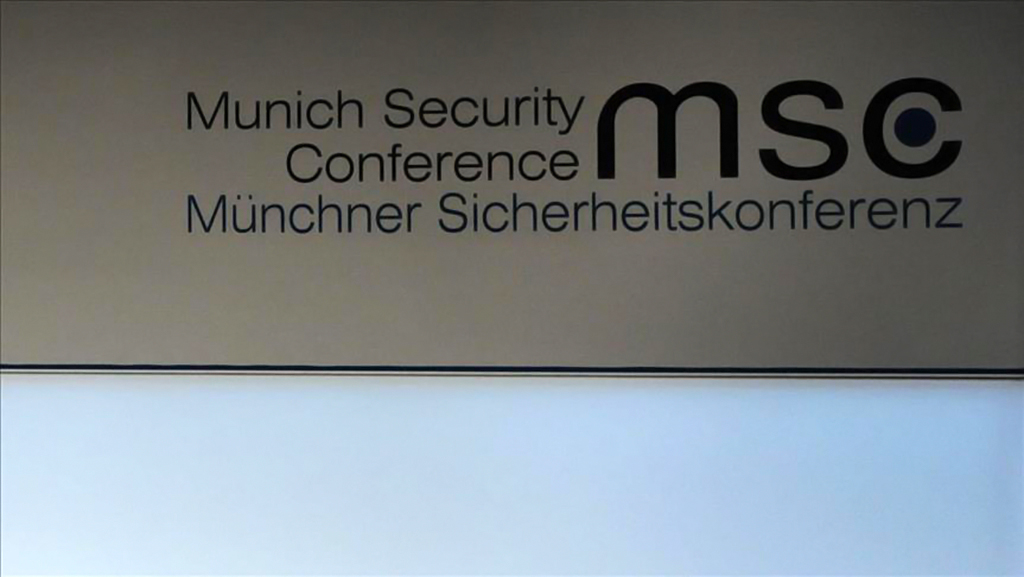From amity to enmity: How the alliance between Saudi Arabia and Morocco collapsed
If the aggressive foreign policy of the Riyadh administration continues, Saudi Arabia will become more isolated than ever, as the cases of Qatar and Morocco clearly indicate
More


The changing landscape of global security
The Munich Security Conference is an influential platform where global security trends are discussed every year by academics and policymakers.
More
The world powers are stuck in domestic and foreign crises, struggling to deal with rising problems and damaging the balance in world politics
The global political economic system was established with the Bretton Woods institutions, namely the International Monetary Fund (IMF) and the World Bank, in 1944, just before the establishment of the United Nations.
Italian state’s security and counter-terrorism-oriented approach prevents it from adopting collaborative policies on Islam that do not criminalize Italian Muslims but aim at working with them hand-in-hand toward mutual benefits
The United Arab Emirates (UAE) has recently emerged as a revisionist and expansionist state, not only in the Middle East but also in North Africa, the Horn of Africa and even the Balkans.
Aid should focus on development: Turkey’s first lady
Turkey’s vision of humanitarian aid is not about aid packages or vulnerable people waiting in line, says Emine Erdogan
More


Balancing against American hegemony
The current American administration, led by an ultra-nationalist and xenophobic politician, has abandoned the traditional principles of American hegemony, namely liberal democracy and the free market
More
President Recep Tayyip Erdoğan's participation in the BRICS summit in Johannesburg, South Africa last week was significant for Turkey's search for a new direction.
Last week, President Recep Tayyip Erdoğan traveled to South Africa to attend the 2018 BRICS summit along with a group of journalists, including myself.
Emerging powerhouses need objective institution against Western-based agencies' political decisions, says economic expert
The 10th Summit of the BRICS countries began in Johannesburg, South Africa on July 25. The group includes five emerging economies: Brazil, Russia, India, China and South Africa. The BRICS countries comprise 40 percent of the world's population.
NATO's Brussels Summit witnessed "strong debates on defense expenditures," showing that the rupture within the alliance is growing.
In the post-elections era, Ankara is set to follow a multi-dimensional independent foreign policy, facing both regional and global challenges by pursuing rational steps and strategies
The American invasion of Iraq can be demonstrated as a textbook example of how to kill a state and destroy a population, if not a nation.
The United Arab Emirates (UAE) has been one of the leading countries in the Middle East in terms of aggressive foreign policy.
Rather than a single diplomatic policy, Turkey's Africa initiative is a step toward forging a new identity that can struggle against colonial powers
President Erdoğan does not just criticize Western countries, he also calls on them to reconsider their relations with the rest of the world on the basis of new partnerships
The U.S.'s continuous support for the People's Protection Units (YPG) in northern Syria has elicited political criticism and moral outrage in Turkey.
President Recep Tayyip Erdoğan went to the Vatican to meet with Pope Francis. His official visit was significant because it was the first time in 59 years that a Turkish president has gone to the Vatican.
Insight Turkey, one of the leading academic journals in Turkey and the region, in its first issue for 2018 brings to its readers valuable articles that focus mainly on China’s foreign policy. “Persistent Rise of China: Global Challenges and Regional Dynamics” assesses China’s growing influence in international and regional politics and experts in this field provide different perspectives regarding China’s global challenges and the regional dynamics.

















